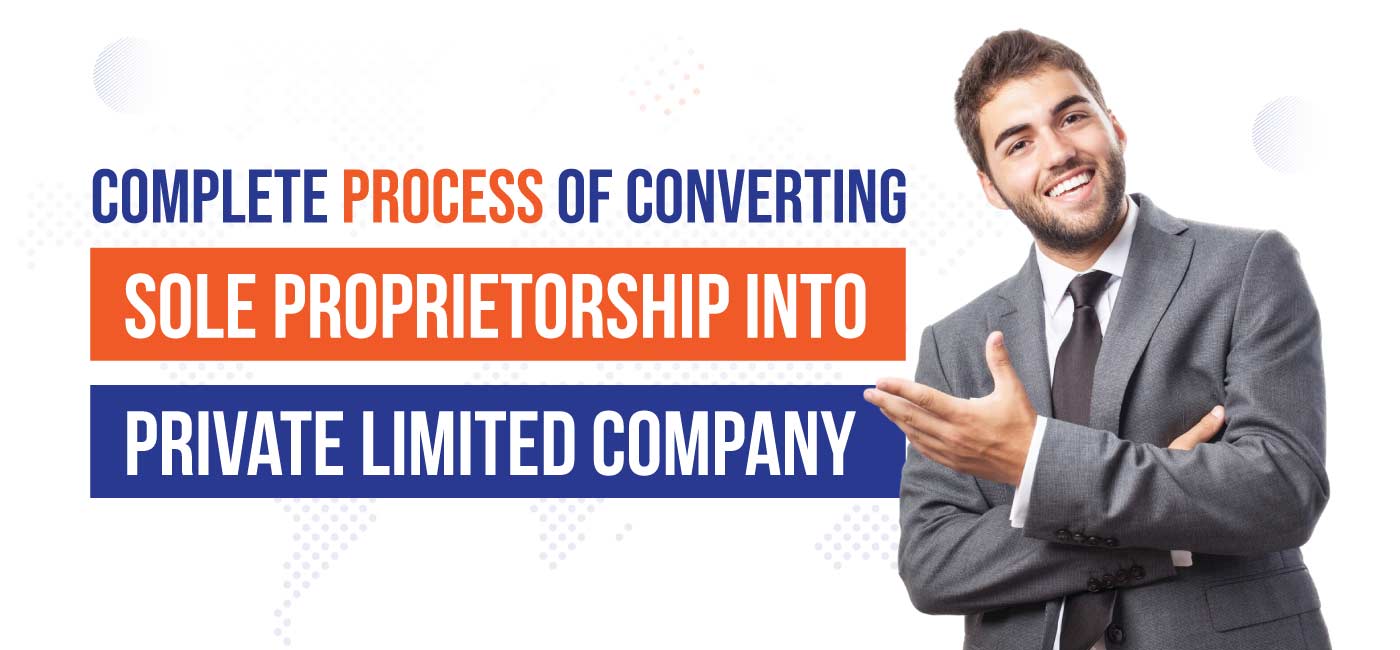-
What is the process for converting a sole proprietorship into a private limited company?
The process involves obtaining DSC and DIN, reserving the company name, drafting MOA & AOA, filing incorporation documents, and obtaining PAN & TAN.
-
How long does the conversion process typically take?
The conversion generally takes 15–30 days, depending on document readiness and MCA approval.
-
What are the benefits of converting a sole proprietorship to a private limited company?
Benefits include limited liability, better credibility, access to funding, tax advantages, and perpetual succession.
-
What documents are required for the conversion?
Documents include PAN & Aadhaar of directors, passport-sized photos, registered office proof, and NOC from landlord if applicable.
-
Can I continue business operations during the conversion process?
Yes, your business can continue operating, but legal and financial contracts should note the pending conversion.
-
Is professional assistance necessary for conversion?
Professional assistance is recommended to ensure compliance, proper filing, and faster approval.
-
What is the cost involved in converting a sole proprietorship into a private limited company?
Costs start from ₹7,399, including name approval, incorporation forms, and PAN/TAN application.
-
Do I need to maintain separate financial accounts after conversion?
Yes, a private limited company must maintain separate books of accounts and bank accounts.
-
Can foreign nationals be appointed as directors in the converted company?
Yes, foreign nationals can be appointed, subject to DIN registration and compliance with FDI regulations.
-
Is the business liable for debts incurred before conversion?
Yes, debts incurred before conversion remain the owner’s responsibility, but future liabilities belong to the company.
-
How is the shareholding structure defined in a private limited company?
The shareholding structure is defined in the MOA & AOA, specifying shares held by each director or investor.
-
Do I need any additional business licenses after conversion?
Depending on your business activity, licenses like GST, Shops & Establishment, or sector-specific approvals may be required.
-
Can a partnership firm also be converted into a private limited company?
Yes, partnership firms can be converted through a similar process of incorporation and compliance filing.
-
What is the key difference between a sole proprietorship and a private limited company?
A sole proprietorship has unlimited liability, whereas a private limited company has limited liability and separate legal identity.
-
Will the conversion affect existing contracts or agreements?
Existing contracts remain valid, but it is advisable to update agreements to reflect the new legal entity.
-
Is there a minimum capital requirement for registration as a private limited company?
No, a private limited company can be incorporated with a minimum authorized capital of Rs. 10,000.
-
Can I add new directors or shareholders after conversion?
Yes, additional directors or shareholders can be added by filing required MCA forms and updating the company records.
-
Are there any tax benefits after converting to a private limited company?
Yes, private limited companies can enjoy lower corporate tax rates and other deductions not available to sole proprietorships.
-
Is Foreign Direct Investment (FDI) allowed in a private limited company?
Yes, private limited companies can receive 100% FDI under the automatic route, subject to sector regulations.
-
What are the ongoing compliance requirements post-conversion?
Ongoing compliance includes annual filing with MCA, maintaining books of accounts, income tax filing, GST, and other statutory requirements.











